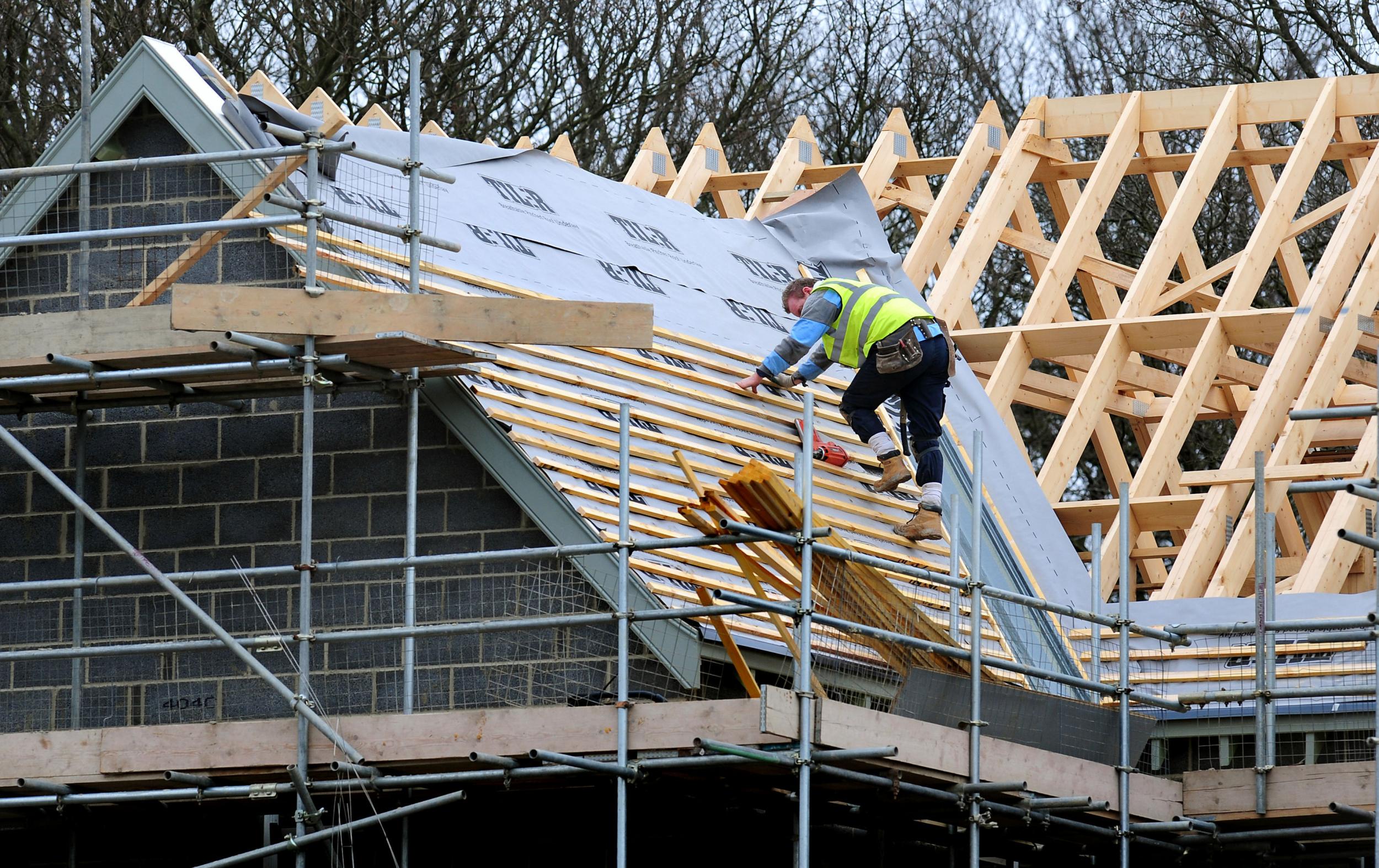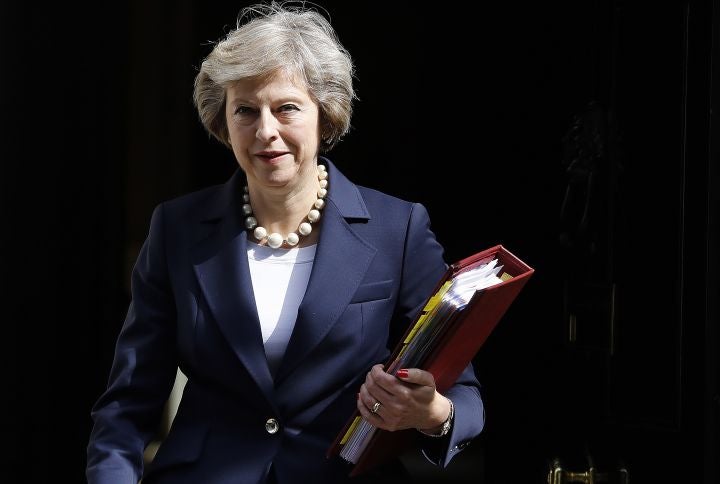Housebuilding slows despite growing shortage of homes
Theresa May has said she will close Britain's 'homes deficit'

The number of new homes completed has fallen compared to a year ago, the latest official figures show. In the second quarter of 2016, 34,920 homes were built, a fall of 2 per cent compared to the same period last year.
The fall means housebuilders are nowhere near the estimated 250,000 homes per year thought to be required to stop the housing shortage getting worse.
The number of homes being completed remains more than a quarter below their recent peak of March 2007, before the financial crisis hit.
Housebuilding was up compared to the previous year if measured using the 12 months to June 2016. There was a glimmer of hope for the future as figures on the number of homes whose construction had started appeared more positive. There were 143,880 housing starts in 2015, up 7 per cent on the previous year. In the most recent quarterly figures housing starts are up 2 per cent compared to the previous quarter.
The figures on housing starts, however, showed a shift away from more affordable social housing towards the private sector. Housing association starts were six per cent lower compared to the last quarter while private enterprise starts were four per cent higher.
All statistics relate to England only as housing is a devolved matter.
Meanwhile, demand for housing remains strong. In a separate report today, the Council of Mortgage Lenders revealed that mortgage lending was broadly stable at £21.4bn in July, down only slightly from £21.5bn in June. Lenders describe the market as "robust", said the CML. The figures do not cover the period after the Bank of England reduced interest rates to a record low of 0.25 per cent, a measure which is expected to further stimulate housing demand as loans become cheaper.
Theresa May has said Britain is not building enough homes and that she wants to tackle a “homes deficit”. The Prime Minister has argued that high property prices are hitting productivity as investment pours into speculative property rather than enterprise. Housing charity Shelter warned that current government policies were not good enough, however.

On Wednesday it had warned that the Government was set to miss its commitment to build a million homes by 2020 by 250,000 at current rates. Roger Harding, the charity’s director of policy, communications and campaigns, argued today that the new Prime Minister had a chance to turn things around.
“Despite the recent good news, it’s clear from today’s figures that as a country we’re still falling far short of building the number of homes we need,” he said. “Shelter’s own recent research shows that, without significant reform to the housebuilding market, the government is projected to miss its target of a million homes by 2020 by over a quarter.
“Theresa May now has a real chance to turn things around and return hope to all those being left behind by our housing shortage, but only through committing to measures that can reform house-building for the long term. This includes using record-low interest rates to invest in a new generation of genuinely affordable homes to rent and buy, and helping our struggling small builders access the land and finance they need to build.”
Communities Secretary Sajid Javid was more upbeat. "We’ve got the country building again with more new homes started and built than this time last year,” he said.
"This is real progress but there is much more to do. That's why we are going further and increasing our investment in housebuilding to ensure many more people can benefit."
Labour described the increase as “slight” but noted that the number was still well below that required to meet even current demand. "Today’s figures show the Government still isn’t doing enough to address the housing crisis,” Tom Watson, the party’s deputy leader, said. "While the slight increase in housing starts and completions is welcome, the number of homes actually built over the past year is just half that required to meet demand.
“Rather than reaching their target of building a million homes by 2020, this Tory Government is presiding over the lowest levels of peacetime housebuilding since the 1920s.The Tories need to get a grip of the housing crisis which is keeping young people living with their parents for longer, preventing security for low and middle-income earners and contributing to the scourge of homelessness.”
Earlier this week the Independent reported that housing minister Gavin Barwell had campaigned against a major housing development in his south London constituency.
Join our commenting forum
Join thought-provoking conversations, follow other Independent readers and see their replies
Comments
Bookmark popover
Removed from bookmarks